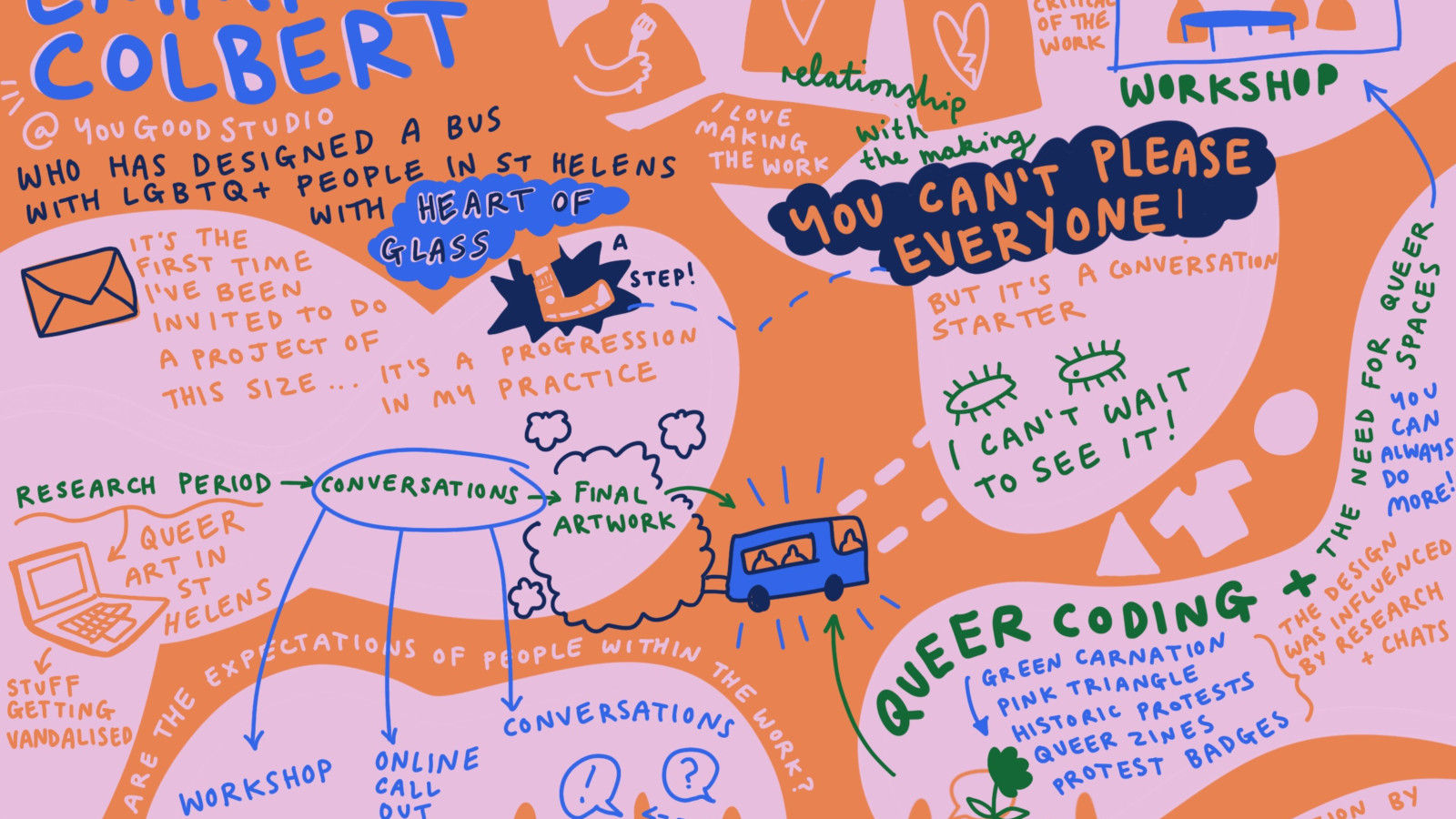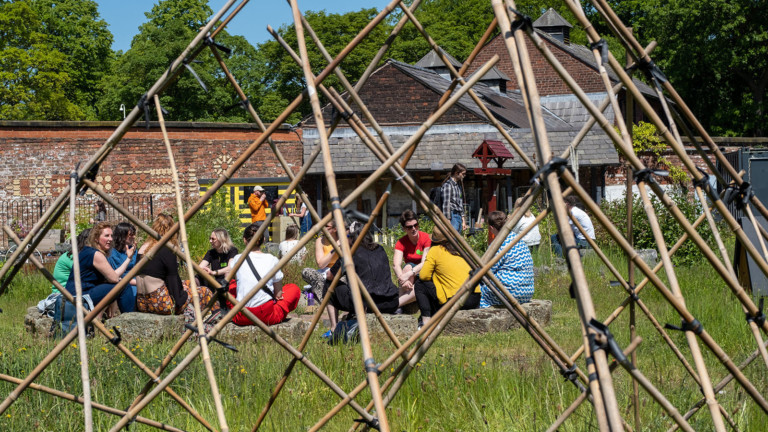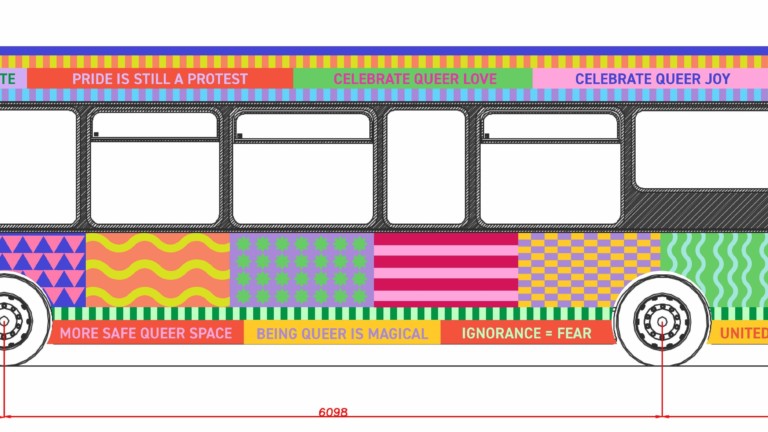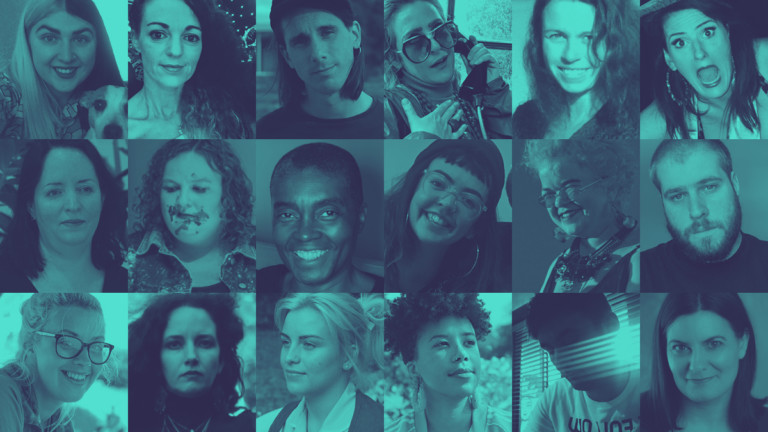In Emma Colbert’s studio at Prism Contemporary, we begin by pulling apart what it means to be a socially engaged artist (which Emma states she isn’t).
"I've had conversations with people, spoken to a few individuals, put the open call up through social media channels and then we had a workshop, but I don't know how I feel about saying [the work was made] 'with the community'. There have been a number of people who have informed it, not necessarily directly. We’ve had conversations and listened to each other and that's sparked ideas within the design. But in terms of saying ‘the St Helens community’, that's too broad. This project has been a lot more intimate, small, one to one conversations."
Emma was successful in receiving one of Heart of Glass’s Homework commissions, which they shared online during 2020 in their Care Compendium. Later on, the collaborative and social arts agency told her they were keeping her in mind for future projects. When they called to invite her to design a bus celebrating LGBTQ+* people’s experience in St Helens, her response was “Hell yeah I want to do that”. One of her biggest commissions to date, this was both a career progression and a new way of working.
Her first step was to research, drawing on histories of queer protest, particularly in response to the vandalism of recent LGBTQ+ public artworks in Merseyside. After this, she put callouts on social media asking for feedback to questions such as, ‘What is something you want other people in St Helens to know about being LGBTQIA+?’. The feedback overwhelmingly raised the need for more LGBTQ+ spaces in the borough, which prompted her to offer a free public workshop in the town centre.
“If one person comes to a workshop and meets someone they've not met before then it's successful. Those little moments are just as worthwhile as the bigger picture.”
Her research and 1-1 conversations accumulated into a design with nods to queer coding and the history of LGBTQ+ symbolism in her colourful signature style. Pink triangles nod to meaning changing use over time, while a conversation about Oscar Wilde led to the inclusion of a stylised green carnation (which Wilde popularised as a way to communicate his own homosexuality). The final artwork, which will be on the streets of St Helens soon, is both boldly positive and sensitive to the need for protest throughout history.
Aware that balancing a day job, her own practice, the wants of participants and the needs of an arts organisation, can be tricky, I ask her what advice she’d give herself at the beginning of the project. Though she laughs about being disorganised and wanting to try harder to find a balance between work and life (she always want to say yes to everything), Emma credits the support she’s had from Heart of Glass, enjoying conversations with people she’s met and getting stuck into a creative process without knowing what the final product will look like. Though this artist doesn’t call herself socially engaged, the understanding, care and enthusiasm with which she’s listened to the experiences of people in St Helens is clear in the positive sentiment soon to be starting conversations across the town.
More information about Emma's commission will be available on the Heart of Glass website soon.
*LGBTQ+ includes Lesbian, Gay, Bisexual, Transgender, Queer, with a ‘+’ to acknowledge other identities not represented. Sometimes ‘IA’ are added to include intersex and asexual people. Increasingly common is the reclaiming of the word ‘queer’ as an umbrella term to encompass all identities that are not cisgender or heterosexual. More information


 On Now
On Now
